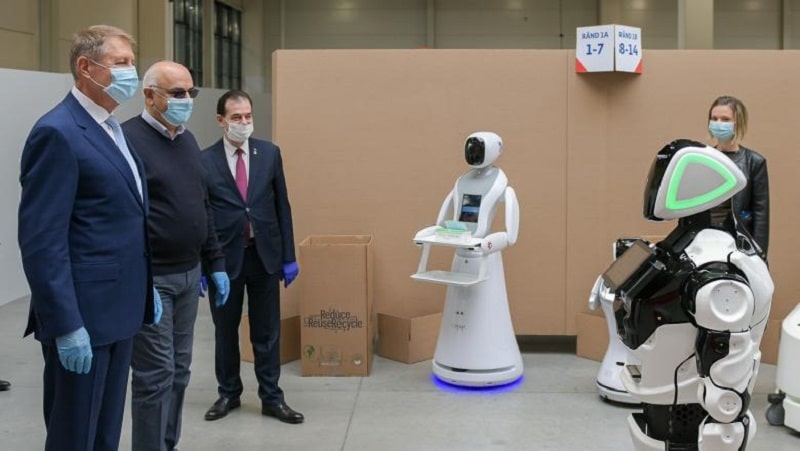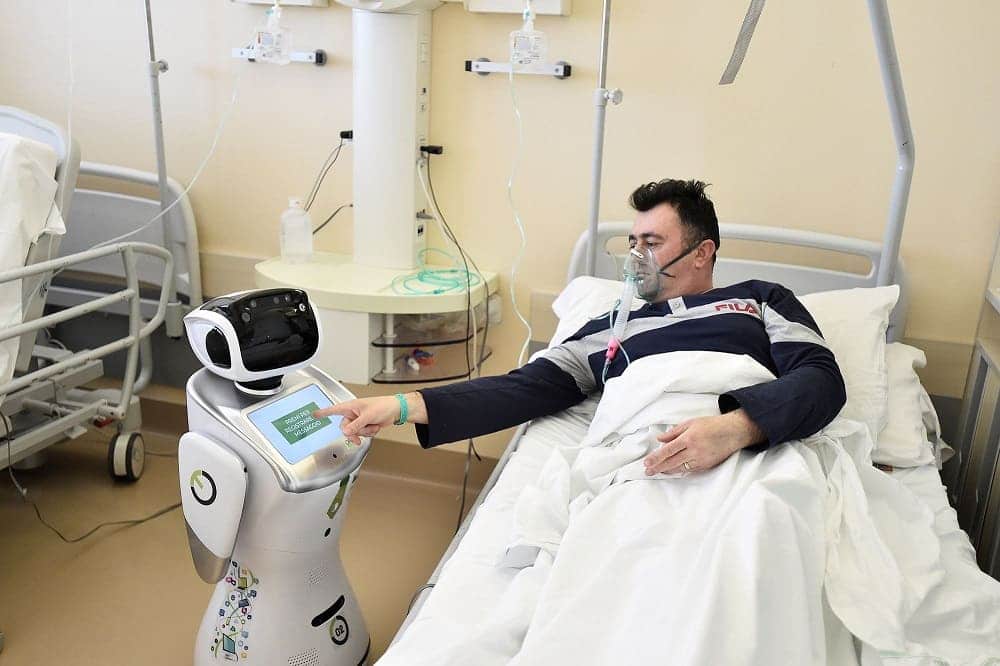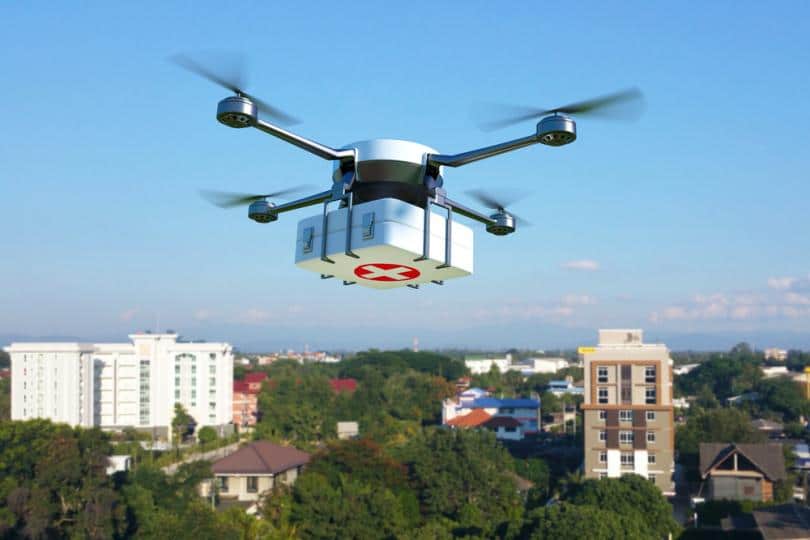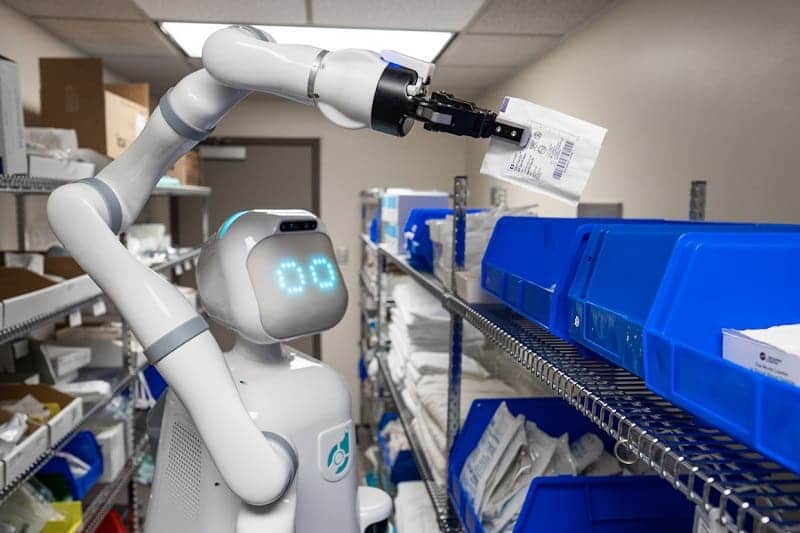A recent post on Instagram caught users’ attention. A Young man saw a young lady dancing outside her house and he decided to make contact. Not having the young lady’s phone number, he decided to get creative. He couldn’t exactly walk over to her house to chat; what with the quarantine and all?
He stuck a not to a drone and sent it over to her. She seemed pleased so we can assume he made a hit. The video quickly went viral.
Viewers raised a few concerns: was the drone sanitized? Did the two remember to wash their hands?
Nevertheless, this shows that robotics is playing an important role in helping people to connect. Apart from stories like this one, the robot is being used to provide services for people practicing social distancing.
Here are a few of the ways robots are contributing to the coronavirus fight.
Robotics is Playing an Important Role in Helping People to the COVID-19 Fight
Navigation of Contents
Telemedicine and Providing Care
With the exponential spread of COVID-19, healthcare systems are overwhelmed. This is especially so in countries such as Italy and Spain where the spread has been fast and furious. Robots support telemedicine which enables clinicians to communicate remotely with their patients.
This would allow them to communicate with people who are practicing social distance. They will be able to detect new COVID-19 infections and give the patients useful advice. Moreover, it becomes easier to detect who needs to be in the hospital and who can be treated at home.
This would help to ease congestion in hospitals as well as prevent new infections. Also, the health workers will be able to access new information which will help them treat patients.
Delivery Robots
If human-to-human contact can be reduced, new infections would decrease too. One way to ensure no contact is by deploying robots to perform delivery tasks. Drones can be used to deliver medication, food and even groceries to people who are quarantined.
Robots can also be used to deliver medical supplies to health institutions. COVID-19 is a highly contagious virus and new information about its impact on the human body is discovered every day. As such, people cannot afford to expose themselves to it.
Order Fulfillment
With online shopping on the rise, robots automate and effect orders. When customers call in or fill in their orders online, the robots ensure order fulfillment. They then deliver the orders to quarantined people including those suspected to have the virus.
This service is especially crucial now that the coronavirus spread has increased. In order to beat it, delivery needs are being delegated to robots. This has led to a boost in the demand for delivery robots.
In addition, robots are increasingly being used in kitchens to cook and serve food in restaurants.
Continue Production in the Workplace
While many human workers have been sent into self-quarantine, robots are still at work. They are programmed to continue production even without the presence of humans on the production floor.
However, not every company has enough robots to take over from where the humans left off. One of the biggest challenges for such businesses is how to ensure that production continues. A complete lockdown would mean that even those who are routinely reporting to work go into seclusion.
The best solution is to invest in robots to work on their production and assembly lines. This will:
- Reduce expenditure
- Ensure continued production
- Save companies from financial ruin
This way, even if the world experiences yet another pandemic, the production line will continue to run.
Drones
Drones are useful for more than sending notes to a romantic interest. They could be used to patrol areas where people are not taking the call to quarantine seriously. They used these in China to identify people who were not wearing masks in public places.
In addition, they were fitted with thermal sensing to identify individuals with higher than usual temperatures. This could be a sign that they have the virus.



